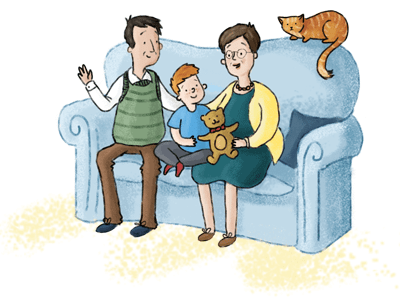
It has long been the practice in the family courts across England and Wales that, once an Adoption Order has been made, the birth family of the subject child would be offered “letterbox contact” only. Letterbox contact is where the birth family write to the child and usually the letters go through a third party such as an adoption agency or a local authority. The purpose of such an exchange has historically been to provide information, rather than to ensure any meaningful relationship is maintained.
The Adoption and Children Act 2002 does allow for post- adoption contact. However, more often the court would determine that direct or frequent contact with birth parents post-adoption is not in the subject child or children’s best interests. Usually, although not always, this is because it has the potential to destabilise the placement and not allow for the child or children to fully invest in their new forever family.
Over the preceding years, studies have been undertaken which have considered the impact of ceasing all meaningful contact with birth families. A helpful and very user-friendly report has just been made public by the Nuffield Family Justice Observatory (Nuffield FJO), a link to which is provided below.
The report highlights two thought-provoking areas for discussion:
- The need to consider direct contact post-adoption in every case and;
- Whether the current letterbox system is archaic and can be replaced with a digital approach.
It’s clear that all family practitioners must give consideration in each and every case whereby a placement order or thereafter an adoption order is sought to the issue of contact. Ongoing contact post-adoption could assist the child(ren) with an understanding of their place in the world and their identity if it’s managed in a very careful and considerate way. Equally, there will always be cases where it plainly isn’t in the child(ren)’s best interests. It’s key that every case is considered and there can be no blanket policy to post-adoption contact.
Secondly, a move to a more accessible digital arena also has its pros and cons. One cannot underestimate the importance of receiving a physical letter that someone has taken time to prepare. However, a digital platform is a more instantaneous platform which may allow for more frequent, and relaxed, correspondence to be sent and received which could benefit the child.
Whilst the legal principles and the law remain the same, there has been a change in recent years with much more research into the complete separation of child and birth family, and its impact upon the child for the rest of their life, which can only assist practitioners and the courts in the future in making the right decision for the child(ren) involved.
You can be reassured that, whilst the tide may well be changing on this niche area, the Care Team at Bromleys have experience in these matters and strive to ensure that all areas of a client’s case in care / adoption proceedings are thoroughly and robustly explored and put to the court.
How we can help?
If you need help, please contact our experienced care proceedings and children services team who can help you with any concerns you may have. Contact our team, on our dedicated helpline 0161 694 4149 or email newcareenquiries@bromleys.co.uk. for your free initial telephone discussion. If you prefer, you can fill in our online form or alternatively, you can email us on bromleys@bromleys.co.uk and we’ll call you back.











